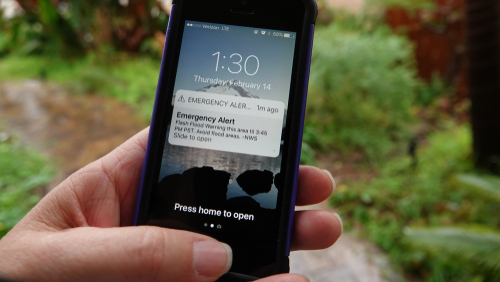
The National Defense Authorization Act (NDAA) includes a bill introduced by U.S. Sens. Brian Schatz (D-HI) and John Thune (R-SD) that will ensure more people receive emergency alerts.
The bill, the Reliable Emergency Alert Distribution Improvement (READI) Act, would bolster the emergency alert system in several ways. Specifically, it explores new ways of alerting people to emergencies, tracks and studies false alerts when they occur, and seeks to improve the way states plan for emergency alerts – among other measures.
“When a missile alert went out across Hawai‘i in 2018, some people never got the message on their phones, while others missed it on their TVs and radios. Even though it was a false alarm, the missile alert highlighted real ways we can improve the way people get emergency alerts,” Schatz, lead Democrat on the Senate Communications, Technology, Innovation, and the Internet Subcommittee, said. “Our bill, which will soon become law, fixes some of these issues and will help make sure that in an emergency, the public gets the right information – on their phones, TVs, radios, and computers – as quickly as possible.”
The Emergency Alert System and Wireless Emergency Alerts System already ensures that the public is quickly informed about emergency alerts issued by federal, state, and local governments via radio, television, and mobile wireless devices.
The READI Act would ensure more people receive emergency alerts by eliminating the option to opt-out of receiving certain federal alerts on mobile phones. It also requires active alerts issued by the President or FEMA to be repeated. It also would explore updating the system to offer emergency alerts over the internet, including audio and video online streaming services such as Netflix and Spotify. It would also encourage State Emergency Communications Committees to periodically review and update their State Emergency Alert System Plans and establish a reporting system for false alerts so the FCC can track when they occur and examine their causes.
In addition to the READI Act, three bipartisan Schatz-led provisions were also incorporated into the NDAA, including the AMBER Alert Nationwide Act, which will expand the AMBER Alert system to include all U.S. territories; the DIGIT Act, which will encourage and plan for the growth of internet-connect devices, known as the Internet of Things; and the Deepfake Report Act, which will confront the rising threat of disinformation and deepfakes.




